photo of Anna by Lara Herscovitch; Oklahoma photos contributed
My soul is very much Oklahoma; a rural farm girl. I was named after my grandmother Anna who is currently a young 95 years old — but my family all calls me AJ. I don’t show up in Oklahoma as a leader, or a finance person, or a nonprofit person. I show up grounded and whole, just AJ. Oklahoma is just where I feel most at ease; I go home three to four times a year to make sure I stay connected to my family who all live there.
My great-great grandparents were born into enslavement, in North Carolina. My great-great grandmother, Frances Parthenia Johnson (born in 1860), and my great-great grandfather, George Watt Johnson (born in 1855) went to Arkansas from North Carolina — we don’t know how. I love ancestry and genealogy and have been trying to piece together the “why” of this migration.
We also don’t know how they end up buying land in Waldo, Arkansas. This is the late 1800s, and they are former slaves. I have no earthly idea know how they get several hundred acres of land in Arkansas, but they do. We owned so much land and there were so many Johnsons there that my grandpa said people called the area “Johnson’s Crossing.”
There’s timber on the land, and then they discovered oil on it. By that point, the next generation had been born and raised there. My great-grandfather, Papa Dock (born in 1900) took care of all the business affairs. His mother, my great-great grandmother Frances, had a great mind for business, but couldn’t read or write; Papa Dock could. He always told her, ‘Don’t ever do any contract signing unless I’m there.’
As the story goes, he was away one day, his mother left alone, and this white gentleman came to the house offering a contract to lease the land. He told her, ‘Yeah, just X your name here.’ She did, leasing him the drilling rights on the oil — thank God not the land itself. It was pennies on the dollar that she signed, a completely exploitative deal. Still, it was a lot of money at the time.
There was a Black gentleman going around at the time, Mr. White — maybe in the late 1920s at this point — who was helping Black people buy land in Oklahoma. I don’t know exactly why he was doing it, if he was an advocate or a real estate agent, but he was letting Black folks know there was an opportunity in Oklahoma.
My family bought a large farm, in a farming community called Haskell, Oklahoma. Several family members moved there — my great-grandpa, Papa Dock, my great-great-grandmother and a few of her children, Aunt May, and my grandpa Floyd who was a teenager then. Some stayed in Arkansas like my great Aunt Ivy, Uncle Charlie, and others.
Growing up in Oklahoma, there were all these small Black farming towns. Oklahoma actually has the most all-Black towns in the U.S., besides Florida. But a lot of Black families lost their land; we’re one of the few Black families that still have their land in that part of northeastern Oklahoma.
Before he passed away, my great-grandpa Papa Dock would say that there was only one other Black family who kept their few hundred acres of land (I think their last name was White). Most other families had their land stolen, or they otherwise left or lost it.
I was always really aware that my maternal family had a very different life from most Black families. They weren’t sharecroppers. They talked a lot about having and owning land. I think they knew it was a privilege. I always think about it in the context of the Tulsa race riots, and all the atrocities of stealing land from Native peoples as well (like the Osage in that recent film, Killers of the Flower Moon).
My grandmother Anna — who I’m named after — had a much more typically Black story, growing up very poor. Her family was from southern Oklahoma; her mother was a domestic in Tulsa, and my grandma was mostly reared by her grandparents. My grandma Anna’s father died when she was one or two years old. She had been close with my grandfather’s family since childhood (my great Aunt Chris was her best friend since second grade and my grandpa’s youngest sister). My grandma Anna and grandpa Floyd married after he returned from World War II and were married for 70 years until his death in 2016.
As I mentioned in my Interview in The Circle, that grandfather — grandpa Floyd — was one of the most influential people in my life. He was born in Arkansas, and was a teenager when they moved to Oklahoma. He stayed in the same small town — Haskell, Oklahoma — his entire life. My grandma Anna survives him at 95 currently, still living in Haskell.
I grew up in Haskell, and spent a lot of time with my grandparents. It was this amazing space, being out on land that I knew was my ancestral land. It was very fun, a really big part of my childhood. I spent every weekend, every holiday, every summer there with them. I went to church with them every Sunday; I was just always there.
My grandparent’s farm was mostly a cattle and pig farm, a lot of animals. I would go with my grandpa every day and do things — tend to the animals, birth and death. Drive the pickup truck; I learned to drive in the fields. We still own an F150 here in Connecticut!
On Saturdays, grandpa and I would go to the auction, buying and selling animals. Here’s all these dirty, old farm men, and there was me, this little girl at seven, eight, nine years old, in her boots traipsing around the auction. Other weekends, my grandma would take me with her shopping in Tulsa and we’d always eat lunch at some new restaurant. I think these are the two sides of me, farm girl and city girl.
My grandpa Floyd was the oldest son, so he was the one that helped the most with the farm, and the family land in Arkansas. He was the family steward, the patriarch, and I was his shadow; I was always around him. We would go check on the land in Arkansas, visit somebody who was sick, tend to various business affairs in the extended family. I knew all the older people, and all the people in Oklahoma, Arkansas, and those who moved north to Detroit as a part of the Great Migration.
Oklahoma is rural. Going from Tulsa where I went to school, back to Haskell felt rural — we’d say we’re ‘going to the country.’ The Arkansas land, in a region called Waldo, made Oklahoma feel like New York City. Ten times more rural, it literally felt like you were going back in time, to the 1800s. Way out in the middle of nowhere. They called it heirs land.
Grandpa Floyd was the person anybody would call — good news, bad news, someone died, someone needed something. He was the glue of the whole generational family at that point and until he died.
I was very, very shy as a child. And I was always drawn to being around the older people. We had a lot of family that lived all around us in Haskell. I loved hearing the stories of our family. I have vivid memories of being immersed in these stories of our family — Papa Dock was around until I was seven (in fact folks say I’m the one who named him “Papa Dock’), Aunt Bell (his youngest sister), Aunt Ivory, Aunt Christine, Uncle Claude, Uncle Charlie.
My family would gather for major holidays. Thanksgiving and Christmas are always my favorite holidays because those were the occasions our extended family — 70 to 100 people — would come together. Every July 4 we would have a reunion with our Arkansas family on our Oklahoma land.
I just loved all the interconnectedness of lineage, kinship, migration patterns, and genealogy. I love the idea of having roots somewhere, and a piece of the earth that is yours no matter what happens. We have a family cemetery in Arkansas; the generation before my grandpa are all buried there at Davis Chapel. So that part of Arkansas felt — and feels — like deeply sacred land.
History was always very much alive for me; I majored in it in college. I just love the idea of families and stories. My family supplemented what I learned in school. I could think about all these real-life examples of Reconstruction, the Great Migration.
My grandpa Floyd talked often about how his grandmother — Frances Parthenia — was a true businesswoman. And Papa Dock, his dad, took after her. In Oklahoma, the land was owned by several siblings. Over time, Papa Dock bought out his siblings, consolidating the farm land so it would be under one ownership and wouldn’t be diluted. Very impressive to do, not having any kind of formal education.
Papa Dock always would talk about how he didn’t trust white people. He’d say they didn’t like him either, but they treated each other with respect, because he owned land. He always said, if you own things, you’re not in a subservient position. People don’t have to like you, but they have to respect you.
That’s always been a very strong value that was passed down in my family, my grandpa said it a lot too. Owning things and not having debt meant you can control your own destiny; you can make decisions; you’re not beholden to somebody else.
I think about them a lot, and all the ancestors in my family, and Black ancestors in general. I think it’s just so fascinating. I have been researching land deeds, all these old pictures and documents, wills, handwritten census reports as far back as the 1870’s, individual household interviews, my grandfather’s World War II medals. I just love it.
My ancestors’ perseverance, especially when they couldn’t see the outcome in their lifetime. How amazing to persevere and build great things for people that may not even be born yet. “Great men plant trees in whose shade they will not sit.”
I always felt like – ok, if these ancestors can do this, what more can I do?
Learn more about Anna at LinkedIn or ConnCORP
Get in touch with Anna directly: ajblanding@gmail.com

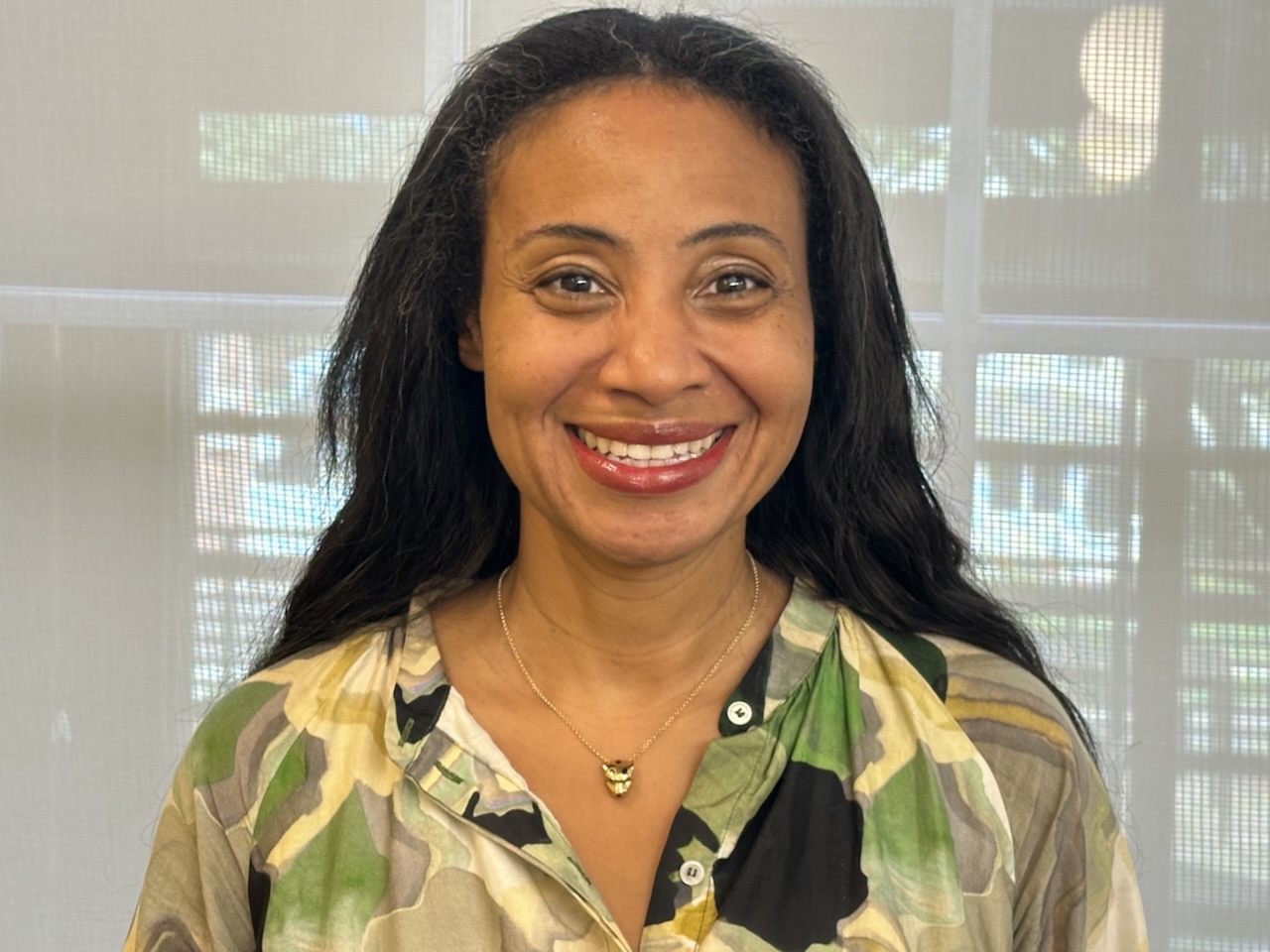
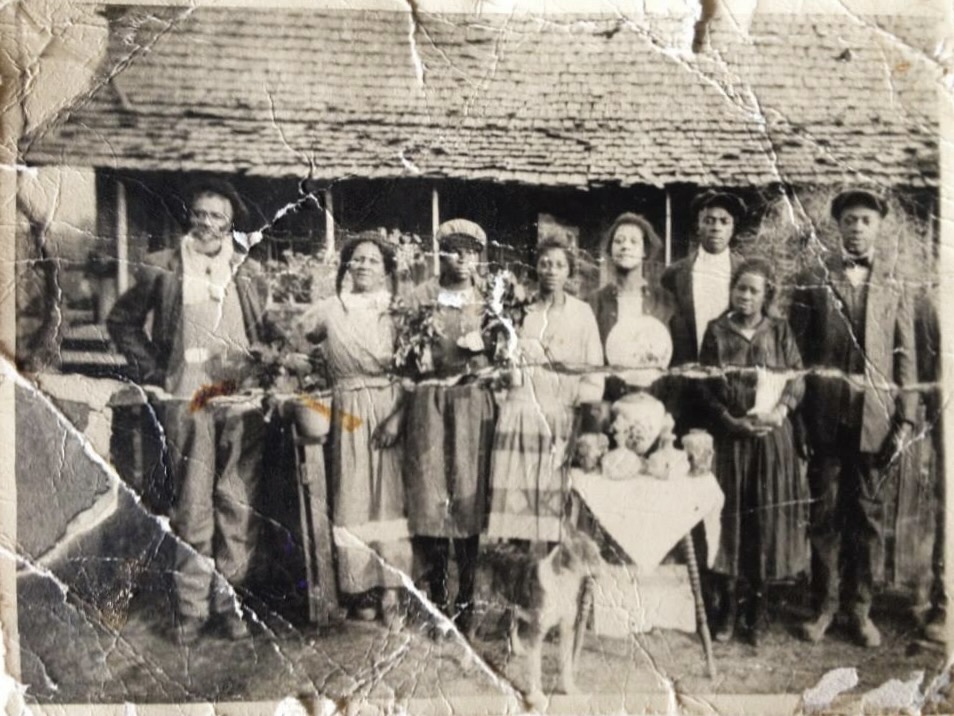
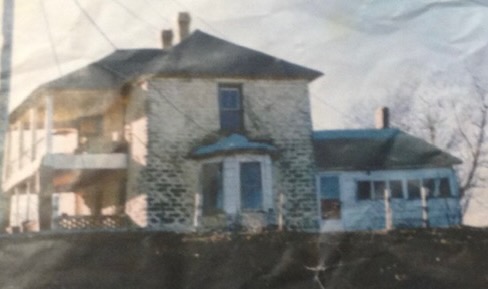
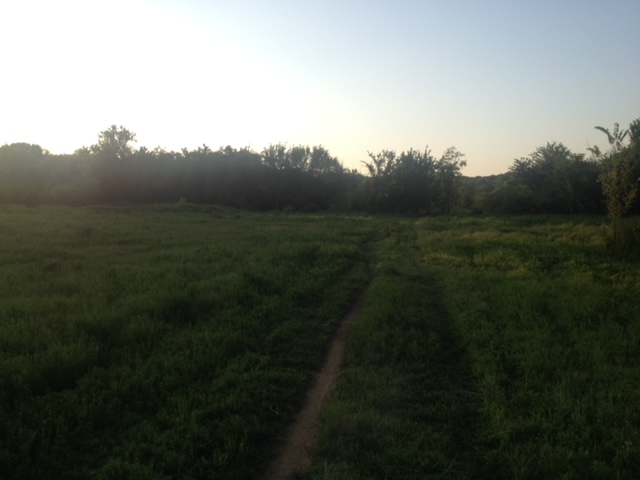
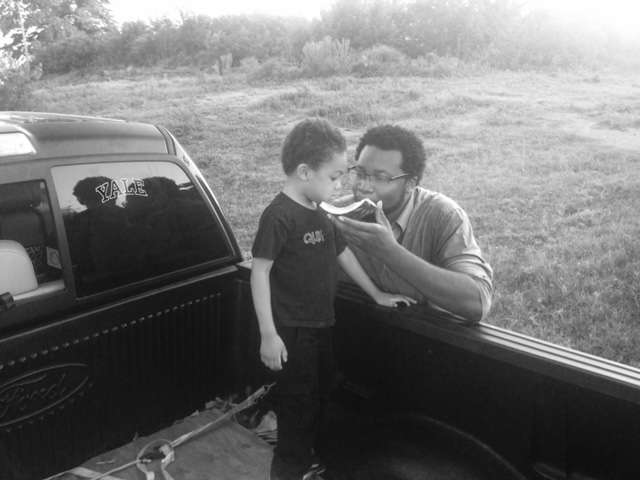
Anna, (AJ) your article is very interesting, informative and so well written. Very great job!
Owning our history and legacy! Beautifully told. I could feel it in the telling. We are a storytelling people with an oral tradition capturing and honoring the stories of our ancestors. Thank you, Anna.